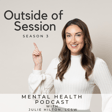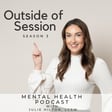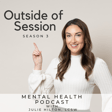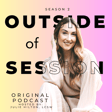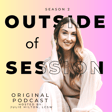
The Power of Shifting Perspective
Just in time for the New Year- Embark on a transformative journey in this episode as Julie sits down with Dr. Jonathan Dunlap to explore the art of shifting perspectives. Discover the therapeutic power of reframing thoughts, overcoming challenges, and how seeing yourself is the key to unlocking change. Join us for an insightful conversation that promises valuable insights and practical strategies to cultivate a positive mindset.
About today's guest:
Dr. Dunlap began his career in 2005 working at a local non-profit organization as an adult case manager after graduating with his bachelor's degree from Jackson State University. He continued to get his masters degree from Liberty University and received his license in professional counseling in 2009. He received his Doctorate in Professional Counseling in 2017 from Mississippi College. He has a wide range of counseling experience including but not limited to alcohol and drug, geriatrics, children and adolescents, and currently works with adults in his private practice. He has a unique approach to counseling where he blends existential therapy with a model he created called Shifting Perspectives.
Get in touch with Dr. Dunlap:
www.onacounseling.com
drdunlap@pm.me - email
601-613-2079 - call or text
